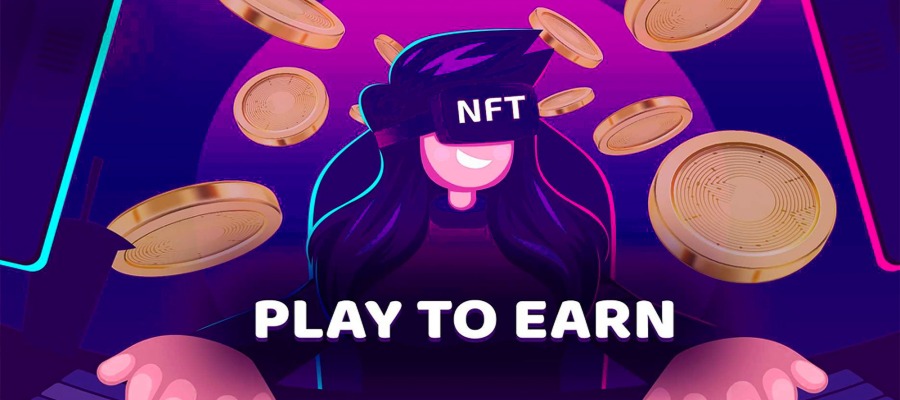What Are Play-to-Earn Games?

The name play-to-earn games already gives an idea of the nature of these games. In a nutshell, yes, gamblers can really earn money by playing them. This business technology is based on blockchain technology, where players can play a game and potentially earn cryptocurrency. Let’s try to figure out some details about play-to-earn games.
When playing such a game, the player can earn rewards like weapons, avatars, virtual land, NFT, and more, by completing tasks, battling other players, or progressing through levels. What differentiates them from traditional games is that their decentralized nature allows the users to purchase and transfer in-game assets to the virtual world outside the game.
Pay-to-earn games have their own crypto tokens built on a specific cryptocurrency’s blockchain. The supply and demand of every game’s currency vary, as well as the specifics of each game’s model and economy. Still, their similarity is that they can potentially provide monetary benefits to players. This can come in crypto, earned due to a fight win, or selling an in-game NFT, or charging other players rent to stay in their virtual land.
Another interesting fact is that play-to-win games are decentralized, meaning the developer cannot control everything from its power center. Conversely, in-game assets are distributed among players. By taking part in the in-game economy, every player generates value for other players and the developer.
Play-to-Earn Games NFT
Non-fungible tokens, or NFTs, are virtual collectible assets coming in various forms, from images to music to in-game characters, items, virtual lands, weapons, and so on. Each NFT is a unique, irreplaceable asset that cannot be duplicated.
You can think of NFTs as the equivalent of unique pieces of art, like Van Gogh’s The Starry Night. Such assets are stored on the blockchain, not just within the game. Besides, each play-to-earn NFT has its specific value. Characters, in-game currency, virtual lands — all these things a player can earn or buy in-game can be sold for profit, just like any other NFT.
Imagine two players with two similar characters in one game, but one character has a sword, and the other has a bludgeon. If they were to trade, one player would have a more valuable character than another.
Can Play-to-Earn Games Be Played for Free?
While some developers create their games free-to-pay, allowing players to earn NFTs as rewards for simply playing the game, other developers ask users to make investments to start playing the game. In other words, the players have to buy NFTs from other players. Although such games have some differences, they still fall into the same category. Both game variations allow players to generate some kind of value that brings potential profit, be it just entertainment or money.
Play-to-Earn vs Gambling
Like many players, our team notices many similarities between play-to-earn games and online slot machines. Play-to-earn games are where the player can play different games with the outcome of more than a win or a loss. They can also provide different rewards, like NFTs or tokens falling under different categories. Gambling is where the user stakes something of value, realizing there is a risk of losing but hoping to win more than the staked value. This is done as a part of a game of chance, where the player cannot affect the slot‘s outcome.
We can see a potential for play-to-earn games to lean towards being games where the player stakes something with a real-money value while hoping to win more. From this point of view, we can assume that play-to-earn games will move closer and closer to what we know as online gambling.